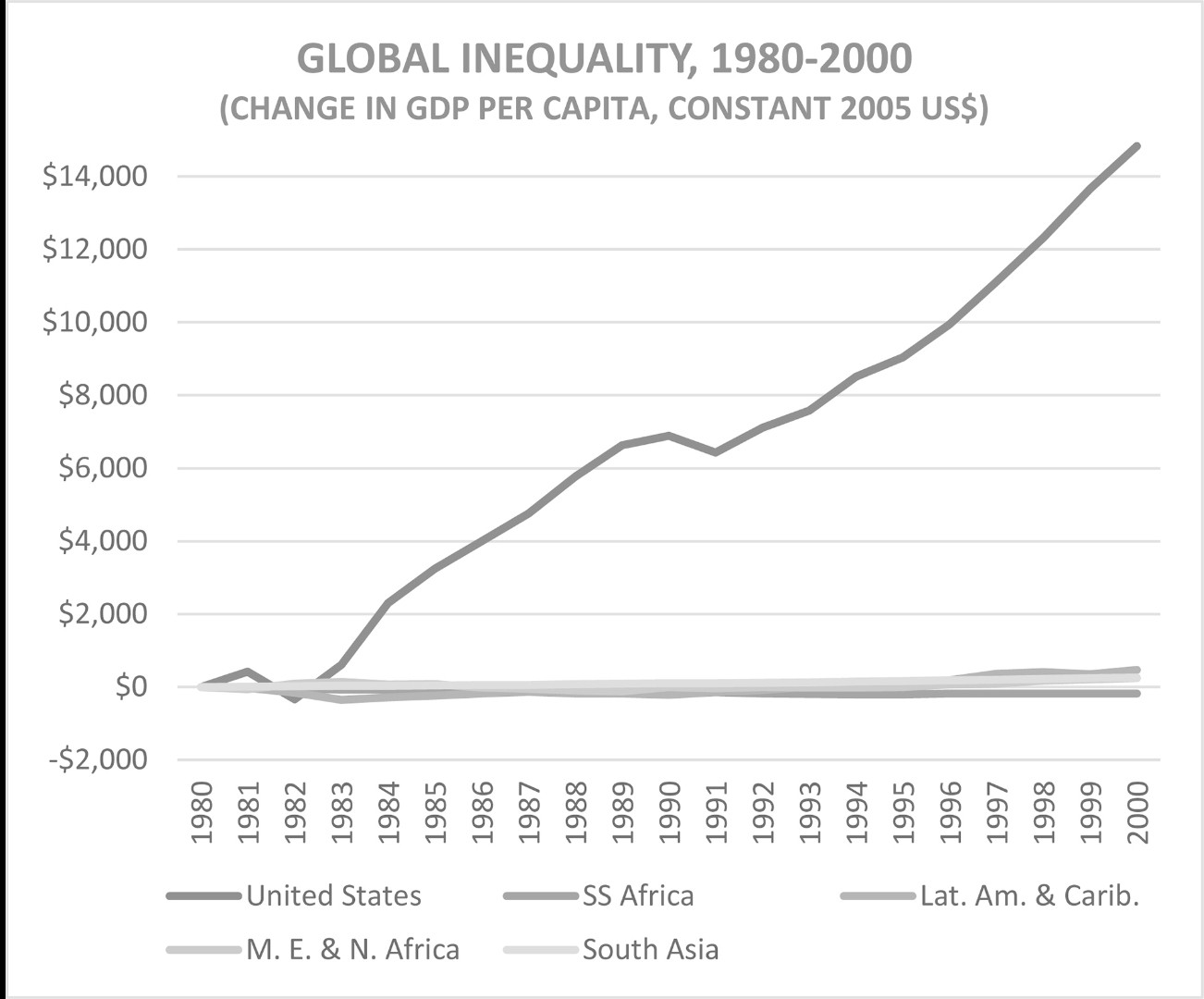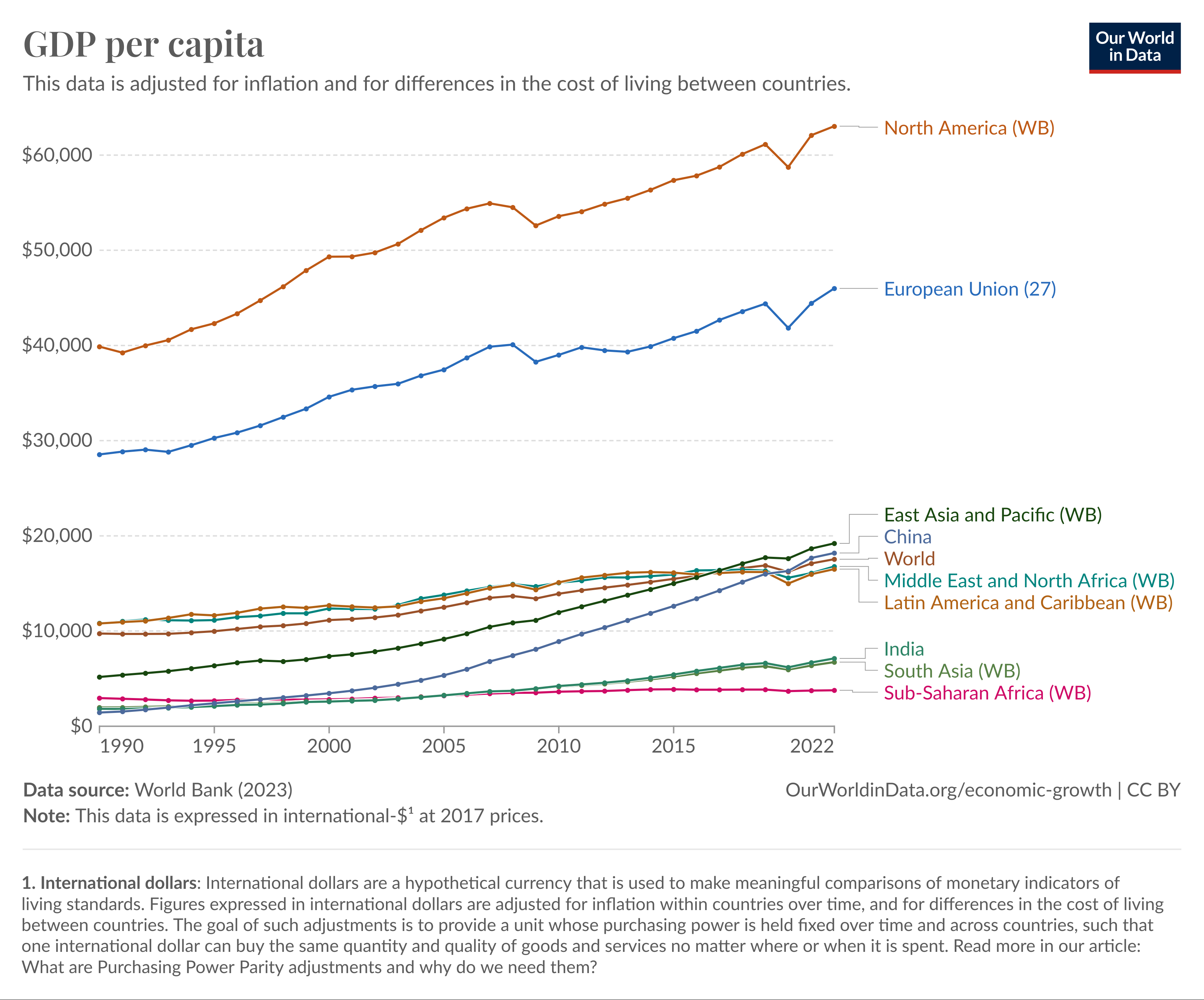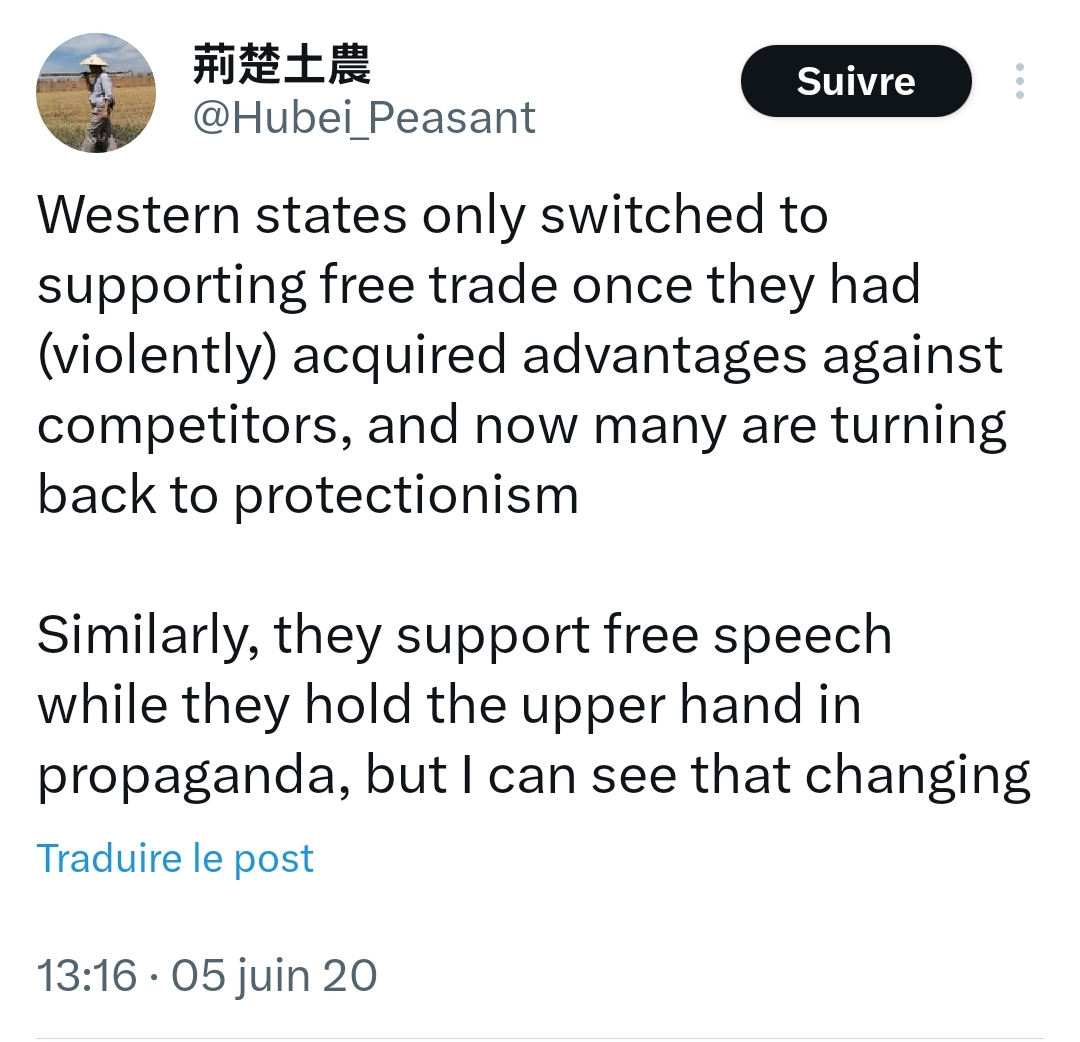The text and pictures below are from AfricanStream, a very informative account present on multiple platforms :
Not only do Western countries unendingly exploit Africa’s resources, but to keep African nations crippled, they also utilise multiple avenues that ensure the continent remains in a perpetual cycle of under-development.
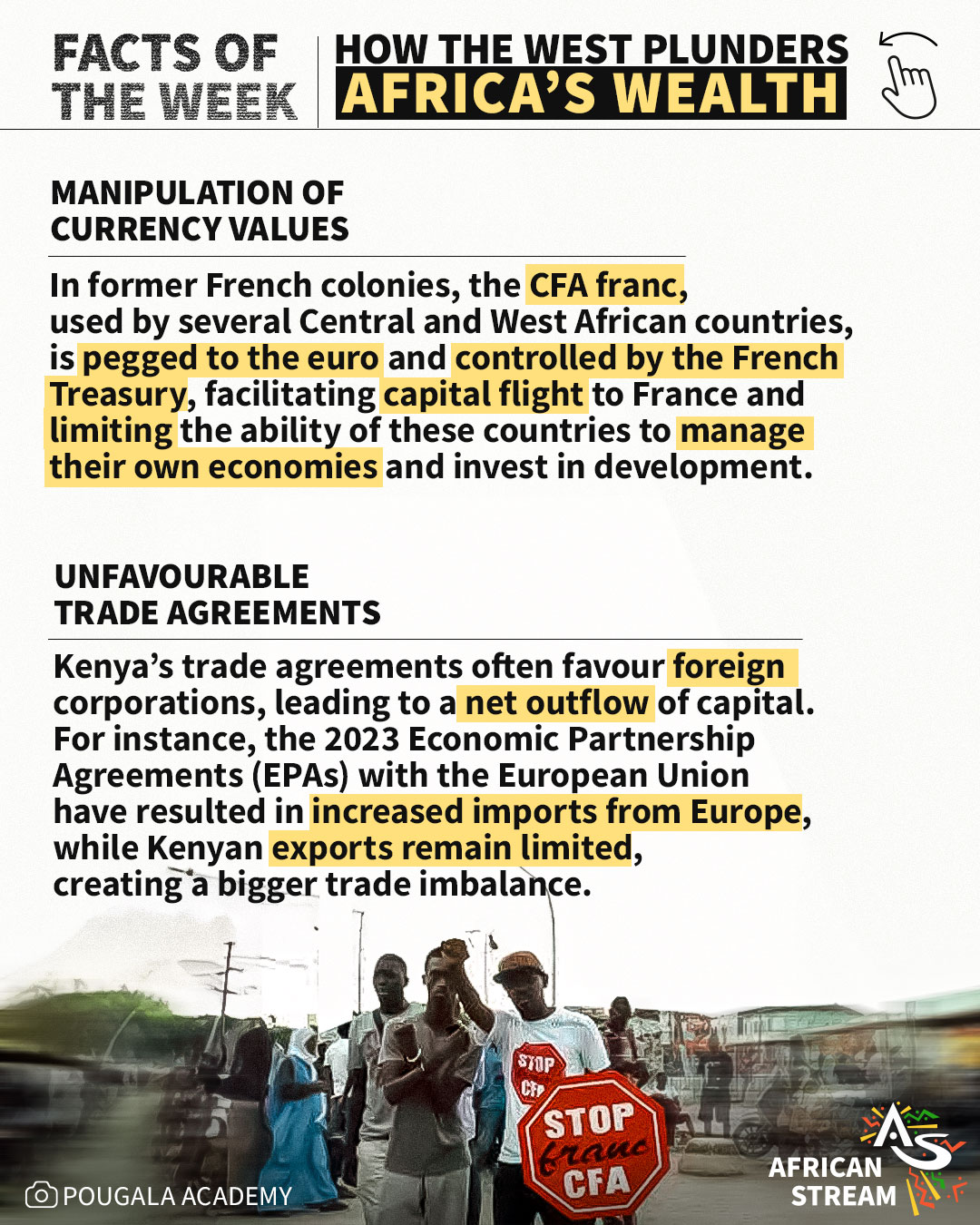
These avenues, which range widely from currency control and unfavorable trade deals to private ownership of strategic assets and the extracting of resources without re-investments back into these nations, guarantee that Africans do not benefit from their minerals and lands.
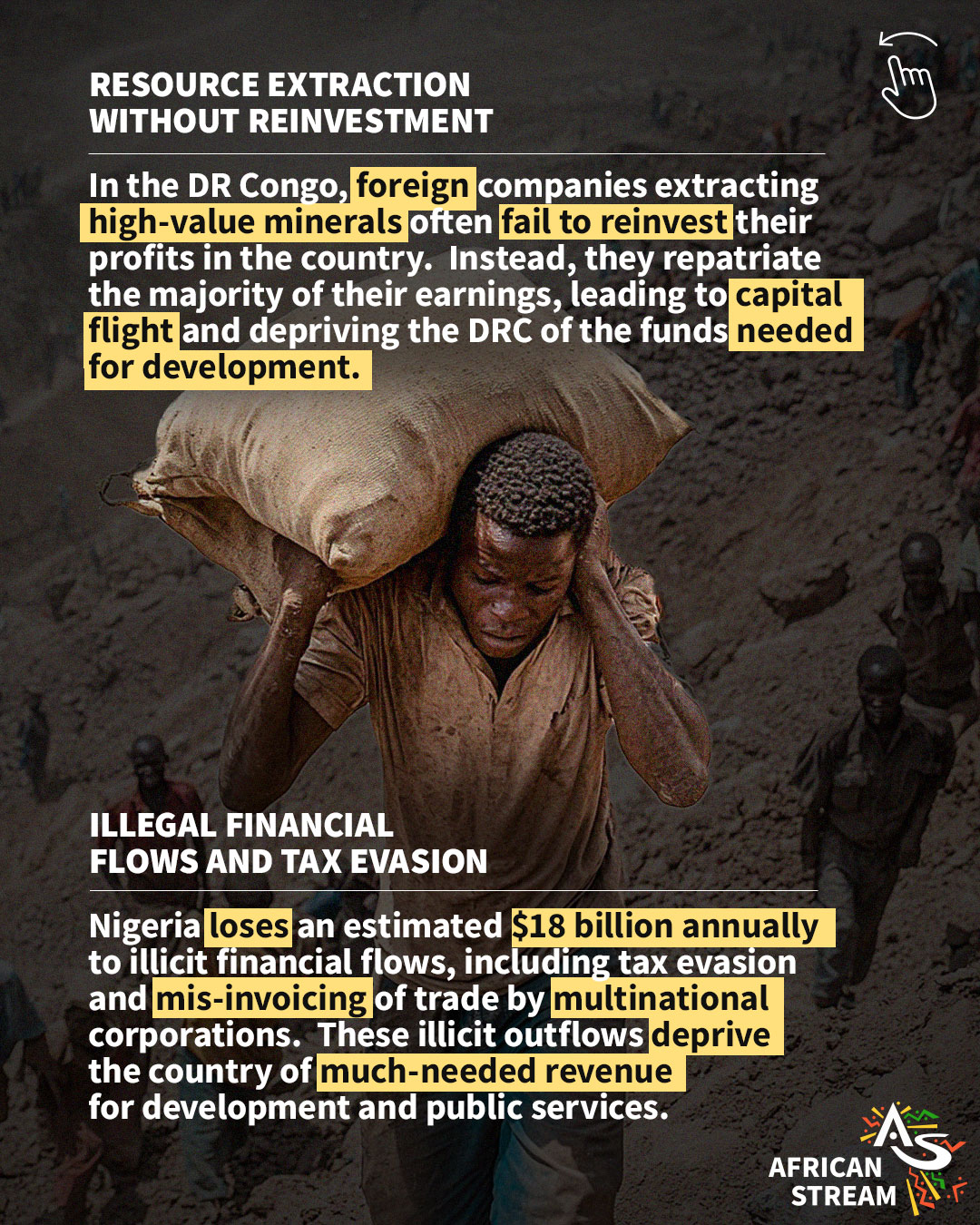
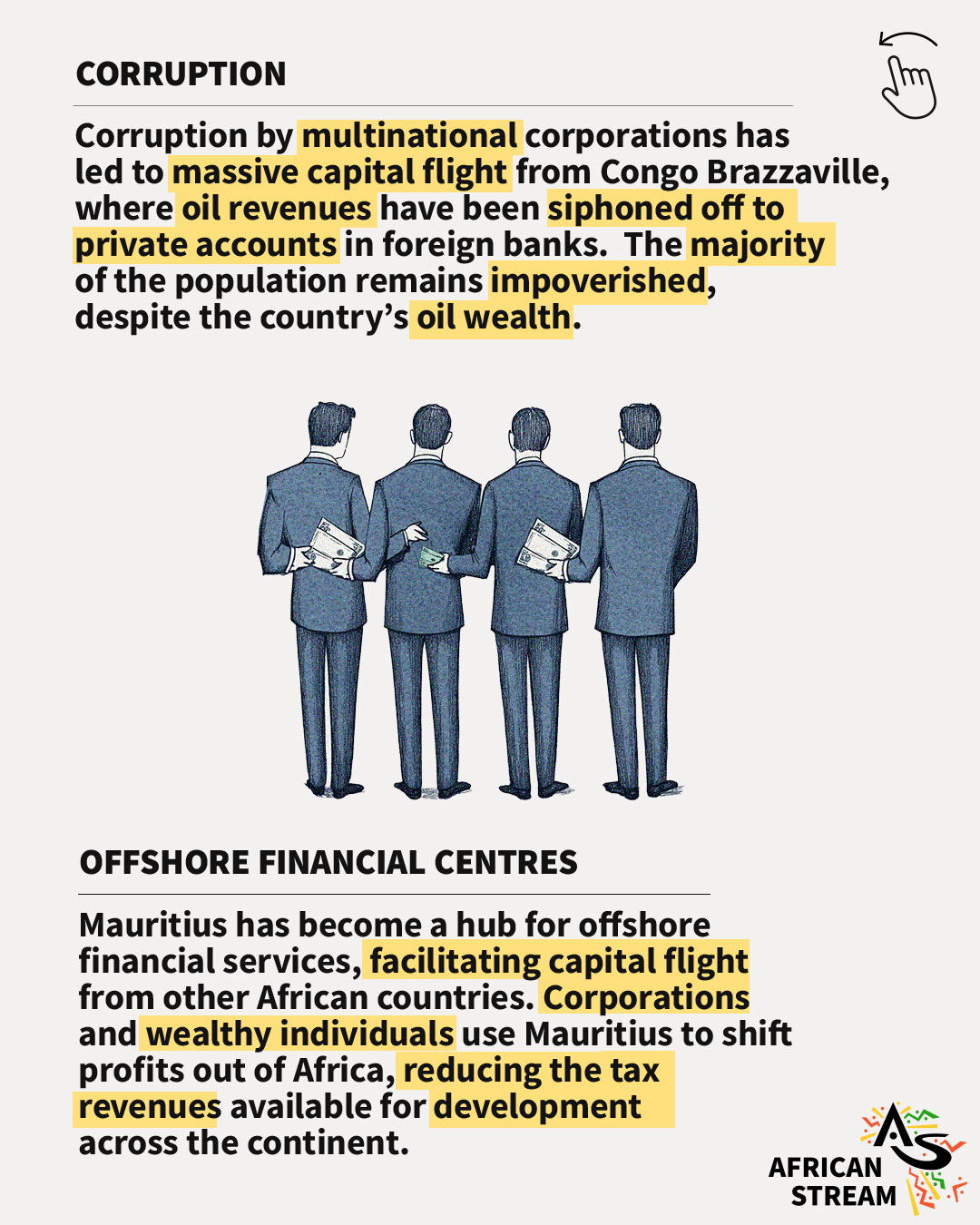
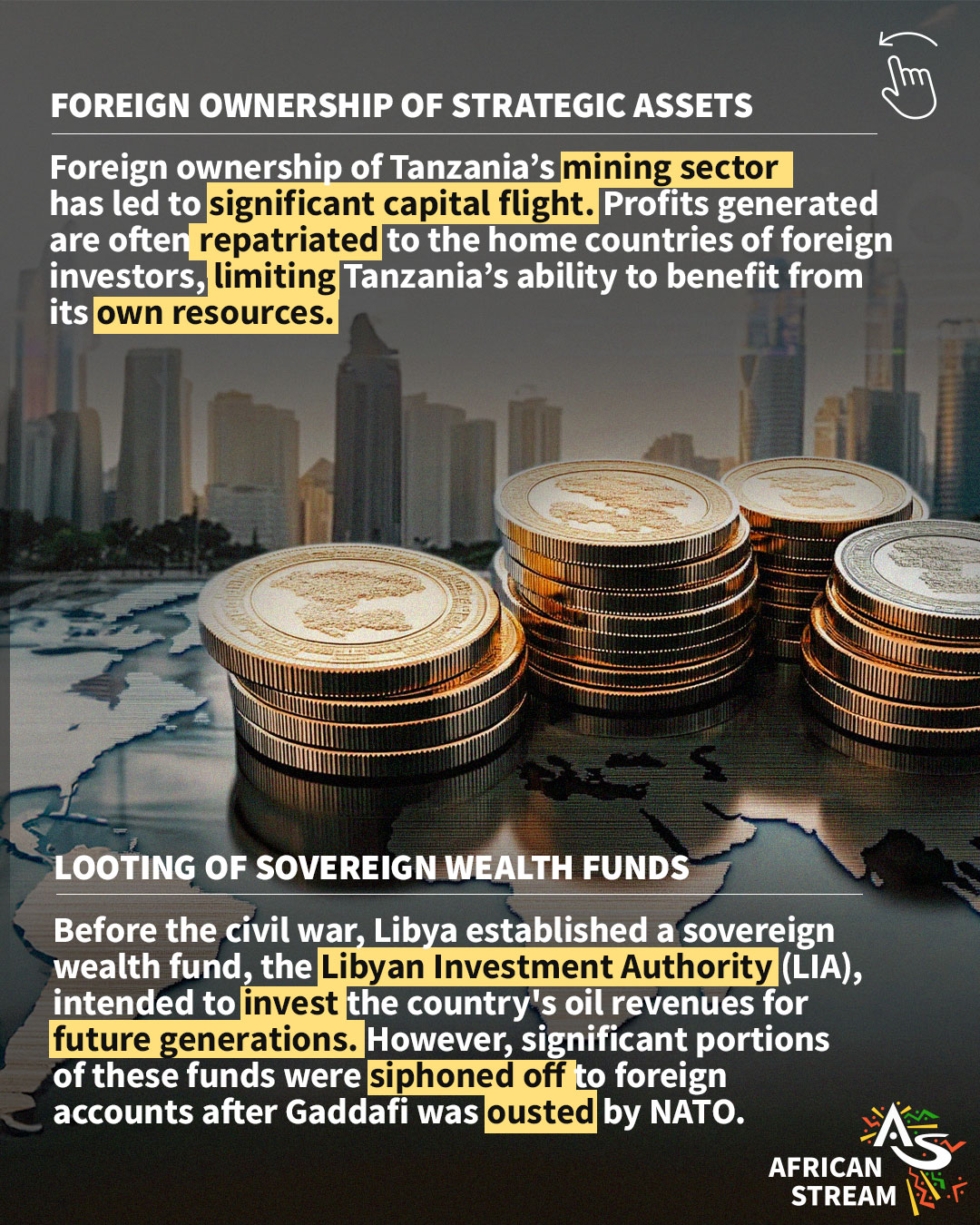
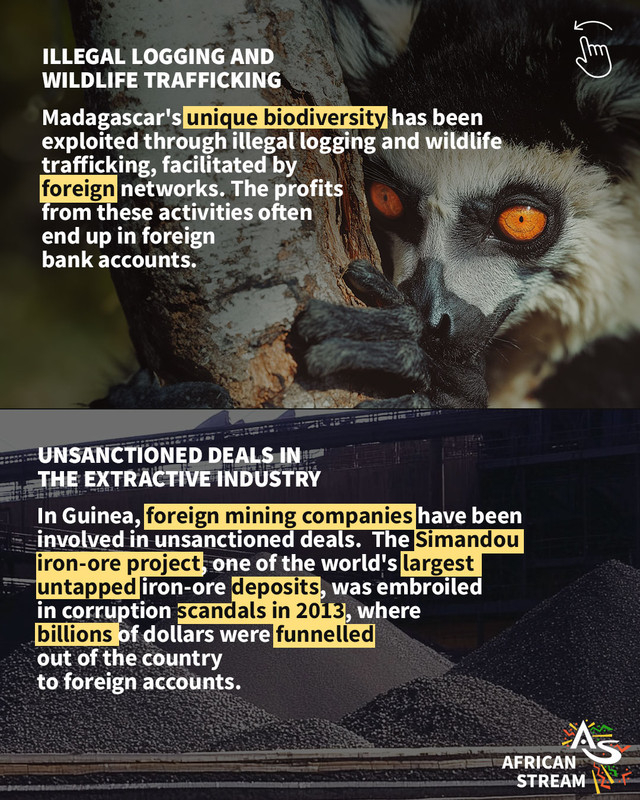
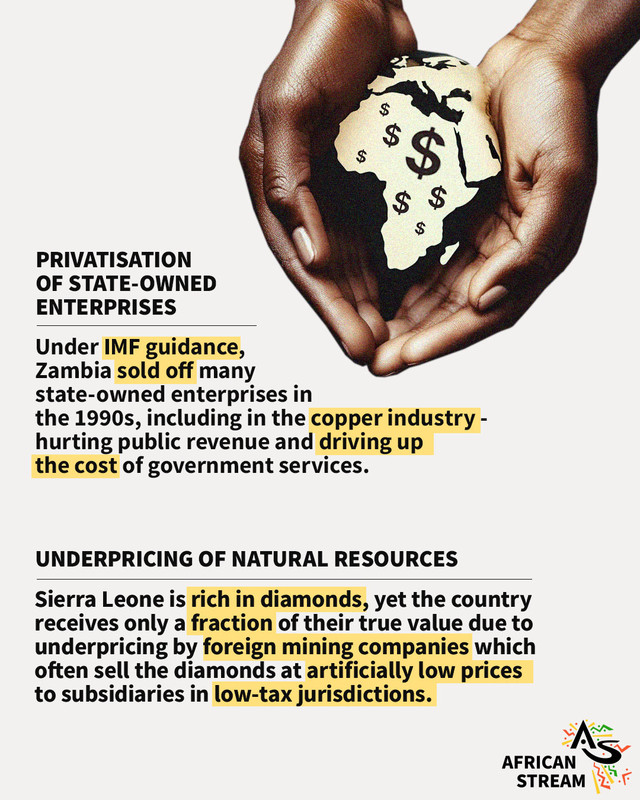
If interested, you can read more about it in their sources.
These are only 12 ways, if you’ve ever read books documenting/explaining neo-colonialism you’ll know that the mechanisms don’t stop there, from some notes i’ve quickly reread i could cite :
- Different measures of exploitation show that global South workers are more exploited than westerners(, if it wasn’t the case their goods would be more expensive and/or western margins would be reduced) ;
- Unequal exchange(, document yourself about it, it’s a long topic with many subcategories, here’s one of many possible quotes : « By the end of the colonial period, the periphery was losing $22 billion each year as a result of unequal exchange, which is equivalent to $161 billion in 2015 dollars. That is twice the amount of aid and investment that the periphery was receiving each year during the same period. This arrangement became a major driver of global inequality. In 1820, at the dawn of the second wave of imperialism, the income gap between the richest country and the poorest country was only 3 to 1. By the end of colonialism in the middle of the 19th century, the gap was 35 to 1. ») ;
- The problems with capital exports to low-wage countries has only partially been cited by the 12 examples, e.g., there may be consequences on local/national politics, as well as psychological/cultural consequences on the population subjected to foreign powers instead of their own ;
- Monopolisation of land, technology, and finance capital ;
- Similarly, the concentration of production and capital leading to monopolies that dominate the economy ;
- Also, the formation of international cartels or economic alliances that carve up the world ;
- Unequal wages for equally productive work ;
- The productive employment isn’t shared ;
- E.Reinert extensively&convincingly critized Ricardo, included by highlighting the distinction between products with a higher valued added than others(, e.g. selling/exporting planes vs. t-shirts, or manufactured goods vs. raw materials, the latter being subject to a stronger competition and less margins among other things) ;
- Explaining the exploitation of the South because of their lack of productivity has been harshly criticized with many proofs in « The wealth of (some) nations» ;
- The export of surplus capital to other countries, driving imperialist expansion ;
- The “unholy trinity”(, the IMF, the World Bank and the WTO) ;
- The debt as a way to control these states : « Between 1973 and 1993, global South debt grew from $100 billion to $1.5 trillion. Of the $1.5 trillion, only $400 billion was actually borrowed money. The rest was piled up simply as a result of compound interest. » ;
- Please don’t conclude that this amateurish list is anything close to being extensive.
The rate of growth is more visible here(, two lines aren’t visible under the line “Latin America and Caribbean”, these two lines are “Middle-East and North Africa”, and “World”)(, India is joined with “South Asia”). Also, note the pseudo-logarithmic scale of the graph.
How long until everyone catches up on the same standards of living ? Apparently not anytime soon(, except for the exception China, or close geopolitical allies such as Japan, Israel, and South Korea, since we always knew how to develop countries but simply didn’t want to, just as we don’t want to be united in diversity).
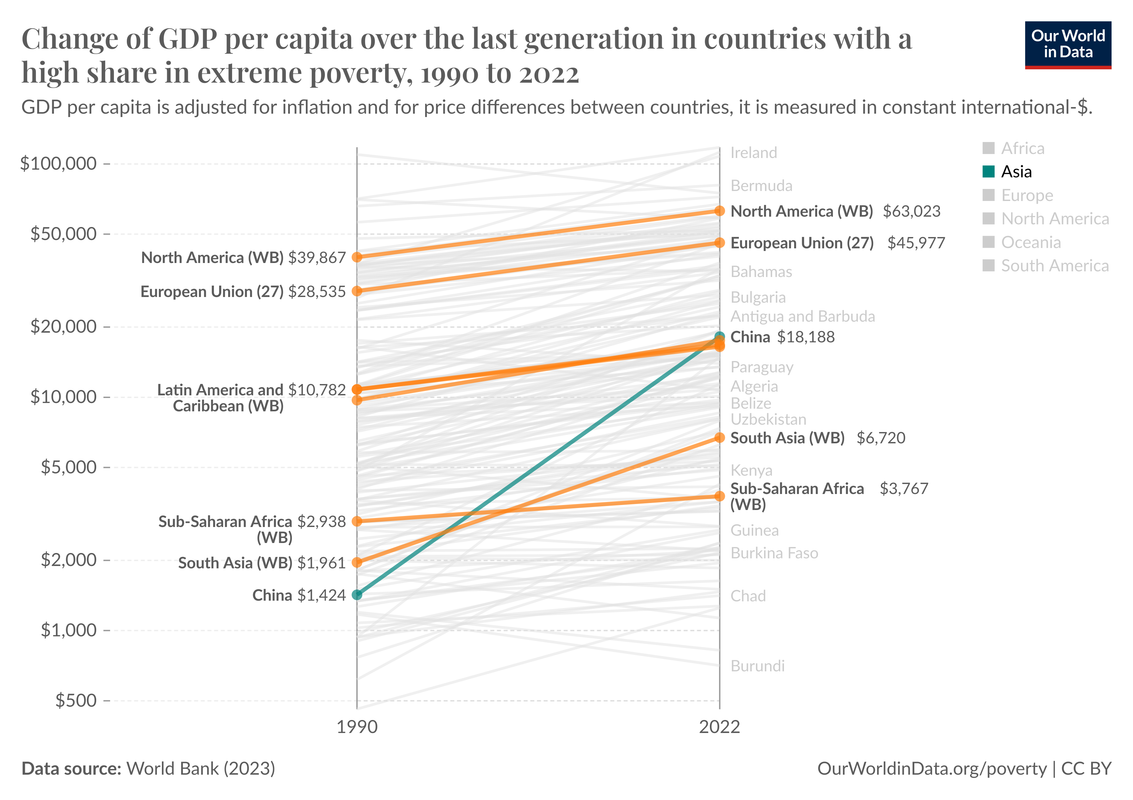
What an amazing coincidence that China(, and India, kinda,) was one of the only countries who refused to follow our advices(, commands in the case of the “unholy trinity”), apparently protectionnism>liberalism>autarky, «do as they do/did not as they say» is the argument of Ha-Joon Chang.
Writing this made me want to re-read “The Divide” by J.Hickel, and while there’s way too many arguments to sum them up here, i just stumbled upon this quote(, here’s the chapter/justification) :
The charity paradigm obscures the real issues at stake : it makes it seem as though the West is ‘developing’ the global South, when in reality the opposite is true.
Rich countries aren’t developing poor countries ; poor countries are effectively developing rich countries – and they have been since the late 15th century.
In regard to the current genocide, i’m also adding his example, without adding well-known details for Lemmygrad users about the confiscation of palestinian water by Israel.
It happened when he visited Palestine in 2012, just two months after the United Nations General Assembly adopted resolution 66/225, calling for the restoration of Palestinians’ rights to their own water(, 167 nations voted in favour of the resolution, the United States and Israel voted against it) :
On one particularly hot afternoon, my hosts drove me down into the Jordan Valley to interview some farmers there about water issues.
Along the way, bumping along a gravel track, we came across a huge white sign jutting out of the desert rocks. The sign announced a USAID initiative ‘to help alleviate recurring water shortages’ by adding a new well in the area.
It was branded with the American flag and bore the proud words: ‘This project is a gift from the American People to the Palestinian People.’
(…)
I tell this anecdote not just as an example of how aid often misses the point, but to illustrate a much larger truth. Poor countries don’t need our aid ; they need us to stop impoverishing them.
Until we target the structural drivers of global poverty – the underlying architecture of wealth extraction and accumulation – development efforts will continue to fail, decade after decade. We will continue to watch the poverty numbers rise, and the divide between rich and poor countries will continue to grow.
This is a difficult truth to swallow for the millions of well-meaning people who have been sold on the development story. It can be scary to grapple with the collapse of a core myth. At least it was for me.
But it also opens up a world of exciting new possibilities, and clears the way to a different kind of future.

